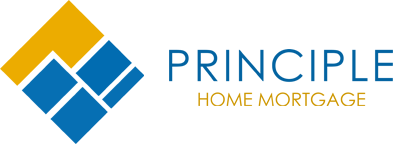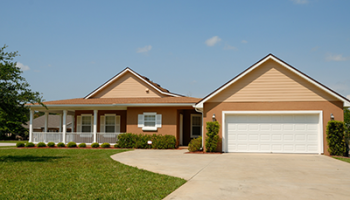Can I Get A Low Down Payment Mortgage?
Can I Get A Low Down Payment Mortgage?
A down payment is the upfront money paid when buying a house, vehicle, or other assets. One needs to save up for a down payment before making the purchase. A down payment for a mortgage has certain requirements for where this money can come from. A down payment is a typical part of a mortgage transaction and varies by mortgage type.
To get the inside scoop on low down payment mortgages, we talked with Williamsport mortgage broker D. Shane Whitteker, owner and chief broker at Williamsport’s Principle Home Mortgage.
When buying a home using a mortgage, you may be required to make a down payment. However, not all home mortgages require a down payment. Making a down payment does come with certain advantages even if it is not required. A down payment covers a substantial percentage of the total buying price for the home. The remainder is paid in regular monthly installments over the life of the mortgage term that is used to purchase the home.
According to Whitteker, the reason why prospective home buyers need to put money down is to mitigate the risk to the bank issuing the mortgage.
“Down payments have to do with risk assessment. A borrower making a down payment presents a lower risk threshold for the bank and insuring agency than a person with no down payment,” Whitteker says. “The different mortgage products are designed and built from risk assessment and also purpose. For example, where FHA is more of a risk based product the VA mortgage is based on risk but is also set up to benefit veterans.”
There are required minimum down payments depending on the mortgage product chosen. One can choose to make a larger down payment than the minimum required down payment and certain advantages may come with choosing to do this.
Advantages of a Large Down Payment
- Putting down money minimizes the total loan amount required; the bigger the down payment, the smaller the loan taken.
- A big down payment ensures you qualify for a loan with a lower interest rate. This, in turn, lowers the total costs incurred in the form of interest.
- A larger down payment lowers your monthly burden as you will be required to pay a lower monthly mortgage payment.
- A large down payment gives the borrower future borrowing power. You can more easily qualify for additional loans in the future
- A large down payment helps you build equity faster. Once you have built enough equity, may of the option of utilizing that equity for future purchases or possibly debt consolidation.
Advantages of a Small Down Payment
There are some advantages of going with a small down payment. According to Whitteker, this road shouldn’t lead to a lower credit score for the borrower.
“In general, I don’t think a smaller down payment would have any effect on your credit score,” Whitteker says. “The purchase price is not listed on your credit report so there wouldn’t be a way that the reporting agencies know what your loan to value ratio is.”
- A small down payment ensures that you buy your home sooner. Saving up for a twenty percent down payment can take years, hence delaying their homeownership journey. Small down payment comes in to save the situation.
- A small down payment ensures that your emergency reserves are always replenished. You do not have to use all your savings and leave nothing for emergency purposes.
- A small down payment ensures you have enough money for inevitable remodeling, repairs, and maintenance after you move in.
- A small down payment allows you to use the money on other priorities such as retirement savings or expanding your business.
Mortgages that Require a Low Down Payment
There are two common types of loans in the US mortgage market; conventional loans and government-backed loans. Conventional loans are more common than government-backed loans. A conventional loan is a mortgage loan that is neither insured nor backed by the government. Instead, the loan is backed by private lenders, and the borrower pays the insurance. A government-backed loan is designed to limit the risk to a lender by offering a certain level of insurance coverage in case of a default by the borrower.
Whitteker recommends prospective home buyers keep all the expenses of buying a house in mind when they decide to move forward with the home buying process.
“Other expenses (in addition to a down payment) would include closing costs,” Whitteker says. “You pay a number of closing costs, transfer tax, prorated real estate taxes, appraisal fee, origination charges (to the bank or broker), escrow account set up, title insurance and associated expenses, etc.
Whitteker says seller assistance can be one way to help defray these costs.
“You can’t finance these costs but you can have the seller pay a portion or all of the expenses depending on your loan type. This is called seller assistance towards closing costs,” Whitteker says. “The buyer would need to negotiate this during the contract negotiation phase.”
There are two types of conventional loans: conforming conventional loans and non-conforming conventional loans. A twenty percent down payment cushions the lender in case of loan default while saving the borrower on paying periodic private mortgage insurance. Below are some of the mortgages that one can qualify for with a low down payment:
Federal Housing Administration (FHA) loan
The FHA loan is one of the government-insured loan programs backed by the Housing and Urban Development (HUD). To be eligible for the loan, one must put down at least three point five percent of the total loan amount. Also, you must have a credit score of about 580. However, borrowers with a credit score of less than 580 can still qualify for an FHA loan to make a down payment of ten percent. There are other requirements than credit score to qualify for an FHA mortgage. Some common requirements are debt to income ratio limits, assets in reserve after closing, a two year employment history, etc.
USDA loan
The United States Department of Agriculture backs the USDA home loan. The USDA loan program is a loan program designed for anyone purchasing a home in designated rural areas. Borrowers do not need to raise any amount of money for the down payment. However, to qualify for the USDA loan, you must meet the income and credit requirements. In addition to the cost of the USDA mortgage, a borrower must pay an upfront guarantee fee. This guarantee fee or funding fee is able to be financed in the mortgage which helps keep out of pocket costs lower.
VA loan
The US Department of Veterans Affairs backs the VA mortgage. Only military service members, veterans, or their surviving spouses can be eligible for a veteran loan. A VA loan does not require you to pay any down payment. You do not have to pay mortgage insurance for a VA mortgage, but will be required to pay for an upfront guarantee fee, just like the USDA loan. Although a down payment is not mandatory, one can pay up to a certain percentage to cut down the funding fee required.
To learn more about low down payment mortgage options, contact Williamsport’s mortgage broker Principle Home Mortgage at (814) 308-0959.
VA Home Loans In Williamsport: A Primer
If you're looking for a Williamsport VA home loan, this article will give you a solid foundation. VA home loans - in Williamsport or anywhere else in Pennsylvania - are one of the best ways to obtain a home mortgage.
Step-By-Step Guide to Being a First Time Home Buyer
As a first time home buyer, you'll have a lot of questions. Check out our Williamsport First Time Home Buyer Guide for answers.
First Time Williamsport Home Buyer Mortgage Tips: The Inside Scoop
If you're considering buying a home in Williamsport - or anywhere else in Pennsylvania, you're guaranteed to learn something new in this informative guide.




